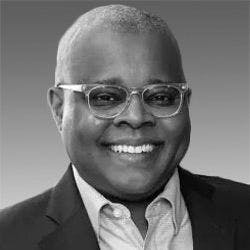Rapidly Growing Chicago Data Center Market’s Tier 1 Expansion Is Persistent and Ongoing
There’s little doubt in 2023 that the greater Chicago data center market has ascended to tier one status in the U.S., with no indication of any slowdown.
In key reporting from this February, Data Center Frontier's Rich Miller pointed out a recent study which tracked how data center incentives in Illinois have served to rejuvenate the Chicago-area cloud ecosystem, helping the state to attract more than $4.2 billion in new investment. The Mangum Economics report found that the incentives helped Illinois attract 13 data center projects, creating more than 8,000 jobs for construction workers.
Miller noted that newly announced projects are poised to bring an additional $4.3 billion in investment into the Greater Chicago market, which includes clusters of data centers Downtown and in Suburban Chicago near O'Hare Airport. “Chicago has long been one of the nation’s premier markets for data center services, occupying a central place in America’s geography and mission-critical infrastructure,” wrote Miller. “The Windy City is also a major hub for Internet and financial infrastructure, with active communities of data-center users and service providers.”
Miller added that Mangum’s Illinois data suggests that tax incentives are indeed a key factor in data center site selection. The study found that development activity slowed in the Chicago area in 2017 as other Midwest states like Ohio and Iowa used incentives to land major campuses for Microsoft, Google, Amazon Web Services, Meta and Apple. The 2019 Illinois tax package was a turning point in the region's competitiveness, the Mangum study said.
The Chicago Data Center Market in 2023
Fast forwarding to this year, CBRE's "Global Data Center Trends 2023" analysis discerned how in the Chicago data center market, while inventory grew 20.6% year-over-year from Q1 2022 to Q1 2023, available lease space declined 2% year-over-year, reflecting an updated vacancy rate of 6.7%. The report stated that hyperscaler and enterprise operators' interest in the Chicago data center market is ongoing, while noting that technology, finance and healthcare industries continue to drive strong demand in the sector's enterprise data center activity.
The CBRE analysis found that demand for land from both data center developers and institutional industrial developers is ongoing in the Chicago data center market. CBRE defines available and affordable land for development as a main challenge in the market. The report notes that land availability continues to be extremely limited in the vicinity of O’Hare International Airport, but that land prices remain stable despite broader macroeconomic conditions.
As pointed out by CBRE, strategically situated in the Midwest and as the U.S.’s third-most populous city, Chicago benefits from its size, location and, critically, demand from cloud service providers (CSP). As CSPs prefer close proximity to end-users, going forward Chicago is expected to experience persistent, regular demand.
However, the global commercial real estate services and investment firm noted that in Chicago, "many developers are competing for power capacity on the same existing and newly constructed substations." CBRE estimates that large power deliveries for data centers in the Chicago market will require 3 to 5 years to complete. Power rates were tracked as $0.065 to $0.07 higher than in alternative markets.
For its part, in its "H1 2023 North America Data Center Report," JLL detects in the Chicago data center market "a calm before the storm." In its outlook for Chicago data center stakes headed into 2024, the commercial real estate services and property investment strategies firm states that power availability is a competitive advantage in the market, which is expected to sell out of capacity through next year. Meanwhile, similarly to CBRE, JLL finds land prices in Chicago "stabilizing as more developments are secured."
The JLL report observes new submarkets being created in Chicago, notably in Aurora and Hoffman Estates. The research states flatly that supply for the remainder of 2023 is largely leased or preleased in the Chicago market. "Power and land constraints are seeing significant increases as limited opportunities exist for new developments in core submarkets," adds the report, while noting how "most major developments are preleased or sit in exclusivity for large pending hyperscale transactions."
JLL revealed that leasing in the Chicago data center market was relatively light during H1 2023, "given historic takedowns in 2022." However, according to the report, "there are several large hyperscale transactions being floated in the market that are likely to take a significant amount of capacity offline."
JLL added that "the greater Chicagoland area is seeing significant demand signals by hyperscale users; however lease signings are being delayed for several reasons, most notably power delays." Finally, the report allowed that "enterprise demand is limited; however those requirements have limited available space to consider."
Notable New Players in the Chicago Data Center Market: Stream Data Centers and Edged Energy
Reporting from Data Center Frontier as far back as last year noted how the Greater Chicago data center market was on a significant upswing, sparked by economic incentives and new projects in both the Downtown and Suburban Chicago markets, including new projects from Aligned and Skybox Datacenters, who in 2022 both opened new facilities in the city's Western suburbs near O’Hare Airport.
In 2023, notable new data center players have continued to enter the Greater Chicago market. Elk Grove Village is one of those aforementioned Western suburbs; the municipality, which lies to the immediate west of O'Hare, has been a popular location for data centers, and continues to be, while illustrating how suburban nature of “the suburbs” can sometimes shrink a bit as data centers move in.
In reporting this August, the Elk Grove Journal & Topics' Tom Robb described how the Elk Grove Village planning commission unanimously recommended approval of a proposed three-building data center campus from Stream Data Centers in Elk Grove Village with an area of more than 2 million SF.
Amid some friction over the project's annexation being tied up in fire district intergovernmental agreements, Elk Grove Village plan commissioners primarily considered the building elements of the project and rezoning the area from unincorporated residential to I-1 industrial usage. If the plan is approved quickly, developers estimate construction could begin by late 2025 - early 2026, on a timeline for build-out of up to 10 years.
According to the report, the planning commission agenda listed 55 addresses slated for overbuilding on Roppolo Drive, Dierking Terrace, and Richard Lane in unincorporated Elk Grove Township, where the project is planned. As reported by Robb, Elk Grove Village Mayor Craig Johnson said "those property owners were offered larger sums for the purchase of their properties than they might have gotten selling to an individual home purchaser because the project is a data center, which needs so much space and has particular needs." The report added, "Elk Grove Village is the No. 2 location where data centers are being developed outside Virginia in the United States, Johnson said."
Elk Grove Village Plan Chairman John Glass noted the request of several variances in the project, and said "the building as proposed would include required step-backs to avoid the appearance of a tall concrete building, and what some describe as a canyon effect among tall buildings," as reported by Robb. Glass noted that the Stream project proposes a highly efficient self-contained loop for its water cooling system. Other variances recommended for approval by plan commissioners include an eight-foot wrought iron fence and taller building heights.
In another notable new development announced this year in the Chicago data center market's Western suburbs, Edged Energy in May broke ground on an ultra-efficient, waterless data center campus in Aurora, Illinois, approximately 40 miles to the southwest of Elk Grove Village. Edged's Chicago-Aurora data center is one of at least five data centers the company has announced in the U.S. this year, as noted at Data Center Dynamics, and more than a dozen worldwide. Edged is a subsidiary of Endeavour, a firm established by Aligned Energy founder Jakob Carnemark devoted to supporting rapid growth and sustainable operations as it develops and scales net zero distributed energy, water and IT infrastructure for global cloud and logistics companies.
The Edged Chicago-Aurora facility will offer 100 MW of capacity built to handle dense AI-driven workloads on their way to transforming the IT industry. Located on 65 acres at the southwest corner of Bilter Road and Eola Road in Aurora, the new multi-building data center campus is being designed with waterless cooling and energy-efficient systems for enabling a PUE rating of 1.15, according to a press release. The site reflects a collaboration between Edged Energy, real estate developer Seefried Industrial Properties and local utility provider ComEd. The new data center campus, known as Aurora TechPark, will be constructed in three phases, with the first building scheduled for completion in June 2024.
Edged says its overall data center platform is uniquely optimized for both energy and water efficiency. As stated by the company, "Unlike traditional data centers which put significant pressure on the power grid and consume nearly 136 billion gallons of water each year in the U.S. alone, Edged Chicago-Aurora will be outfitted with ultra-efficient waterless cooling technology that can handle high density loads - up to 50 kW/rack in air-cooled configurations and greater densities with liquid cooling plug-in components - yet consumes no water. This innovative design helps ensure that the data center’s operations strengthen the local grid and are carbon neutral."
The new campus will also offer electric vehicle charging onsite. “Edged is proud to work with our partners in the Aurora community to bring a new era of sustainable infrastructure and world-class connectivity to the region,” said Frank Scandariato, Director of Platform Delivery at Edged Energy. “With the groundbreaking of Edged Chicago-Aurora, we can help the fast-growing digital economy meet increasing demand while also addressing climate change head-on.”
Case Study: Metro Edge’s Illinois Medical District (IMD) data center development
In the Chicago market, the space between data center planning and ground-breaking can sometimes resemble something of a phantom zone for some players, who yet remain steadfast in the confidence of their projects' ultimate success.
Data Center Frontier recently spoke with Craig Huffman, co-founder and CEO at Chicago's Metro Edge Development Partners, a commercial real estate developer that has exclusive rights to build a five-story data center in the master-planned Illinois Medical District (IMD), located less than two miles from the famous 350 E. Cermack data center in downtown Chicago.
As reported in January by REjournals, after finalizing agreements with Corgan, Clune Construction, Power Construction and Ujamaa Construction to design and build the facility, Metro Edge this year received site plan approval for the $257 million, 200,000 SF data center development, along with a power commitment from power utility ComEd, which represented important milestones for the construction.
Designed to Tier III standards, Metro Edge’s exclusive IMD1 data center will be a five-story building located in the heart of medical district to enable critical connectivity, mobile WiFi capability, and renewable power sources to support its research and medical capabilities.
“I've been in commercial real estate for 20 years. I exited a company that I co-founded in 2006 right as COVID was becoming a new household word,” explained Huffman. “I approach this industry through the lens of commercial real estate. Several years ago, we identified what we thought could be an interesting opportunity inside the Illinois Medical District. We didn't know if the city would support it. The city has been hit or miss on its support of data centers. In February of this year, we received full site approval from City of Chicago, which effectively means the only thing standing between us and a shovel in the ground is an anchor tenant. The macroeconomic factors in our country have changed to where financing looks different, and so having an anchor tenant is a foundational requirement in a development like ours.”
Notably, Huffman added, “We had an anchor tenant; unfortunately, they're now in bankruptcy court, so we backed away from them earlier this year. They were going to take 50% of the building - made all the sense in the world. Interest rate increases like we haven't seen in 40 years over the last half of the year certainly helped to doom their business model.” In terms of future anchor tenants for the IMD project, Huffman asserted, “I think the economic uncertainty that has hung over our heads in 2023 - interest rate increases, uncertainty in the economy, layoffs - creates pauses, but that being said, we are having some rich conversations with some household names. There's not a shortage of groups that are very interested, and we hope to have a commitment documented in the next 30 to 45 days that would put us on the path to breaking ground early next year.”
Regarding Metro Edge's deal with its anchor tenant falling apart, Data Center Frontier asked Huffman whether that threw the data center project into any degree of disarray. “I've been an entrepreneur for 20 years - I've never launched a business that went exactly, perfectly right,” he said. “I think zigzags are part of it. I wouldn't say disarray. I think we began to realize this was a possibility, as we watched the anchor tenant’s stock decline each month. From where it was in August of last year when we signed our initial letter of intent, to where it was by December of last year, there was a pretty significant drop. We kind of saw the handwriting on the wall and began to think about, would we want to break ground with someone that has a stock declining this rapidly?”
“The worst thing you can do is have an anchor tenant that's in bankruptcy,” Huffman continued. “We're seeing that with some of the data centers that are being anchored by this group out on the West Coast - leases are being terminated, construction is underway. You want to talk about disarray? Imagine the shovels are in the ground, and you know construction is underway, and your anchor tenant no longer exists. Well, guess what? The lenders start knocking on your door and asking what's your plan to replace the revenue, because we're lending money on a project that no longer has a certainty of revenue that we once thought it had. So I would say we avoided disarray, more than we experienced it. We made what I now would say is a smart business decision to back away, and it's really allowed us to preserve more options than we would have had if we had pummeled forward and elected to break ground.”
On what makes his company especially suited to conduct the IMD data center development, Huffman reflected: "I don't think many of these larger players would have been set up to deal with some of the uncertainties that we had to navigate to get to this point. This is more of an entrepreneurial grind where you have to constantly make adjustments and be very entrepreneurial. I think that's really our secret sauce. We were able to be far more flexible than what some of the larger firms might have been able to do, in a site like ours that has a lot of different players."
He added, "The board of the Illinois Medical District is appointed by our governor, the president of our county, and the mayor of our city. There alone are 3 individuals that aren't always on the same page. Hospitals are notoriously slow on making decisions, particularly ones that don't tie directly to the patients. So there are a lot of aspects where I think we were better suited to navigate the waters of the IMD, where some of the larger groups might have been tripped up. [For instance], I think AI better fits our design. I don't know that we started out saying hey, let's design it for AI, because AI wasn't being talked about. But it so happens that what AI needs, those boxes are better checked in our design that they would be in a different one.”
Data Center Frontier asked Huffman what status of Metro Edge's IMD development looks like currently. He remarked, "It's greenfield development. We have a vacant lot; we did not break ground because our anchor tenant experienced financial difficulties, and we wanted to preserve flexibility. I mean, we're real estate guys. What you really want to do is protect your bases so that you preserve as many options as you can going forward. We've invested a decent amount, but the value of our site exceeds what we've invested to secure site approval to be able to build on our site."
Huffman observed that urban data centers are a different proposition than suburban facilities. "There's a high concentration of operators in the suburbs," he said. "Historically, the suburbs have been more welcoming to data center development than the City of Chicago. There’s a lot of reasons for that - the long and short of it is it's not a guarantee when you say you want to do a data center inside the city. Proper land is certainly tougher to come by; finding acres, plural, is easier in the suburbs than it is in the city. Then also getting all the local approvals needed to move forward is not easy."
When asked what the IMD was currently using for connectivity, Huffman explained, “Many of the hospitals have on-prem data centers; they have hybrid strategies. Oftentimes, data center space inside a hospital was relegated to the least valuable space. That means basement space, other spaces that may or may not be ideal. It's also tough because it ends up being more expensive. The staffing of operating the data center, the upgrades needed, overtime, and so many of the hospitals are running, in some cases, poorly run versions of their own data center operations. Healthcare is unique in that you have folks that want on-prem and cloud, and the best on-prem is in your own backyard, because it’s truly our mission critical facilities, life or death."
Huffman continued, "This spec is fairly typical. I mean, that's the advantage of not having broken ground. There's some room for us to negotiate with anchor tenants that may want some spec changes. We wanted to preserve flexibility because the world is shifting. There are data centers that want to be AI-attractive but can't because they're design is outdated."
The IMD project hinges on Metro Edge’s approval from utility provider ComEd, which unlike the issue of an anchor tenant, has never been in doubt. “Depending on who you talk to, [in terms of being] a strong power provider, they've really looked ahead," said Huffman. "Some of the issues that you're beginning to see on the East Coast, I think ComEd has a handle on; but again, [these issues] could be coming to a neighborhood near you. Some of these challenges that are facing other markets, I think the education piece remains something that the industry has to prioritize. People have misconceptions about the data center industry. The number one complaint we received when we started talking to the city was [that data centers] don't create enough jobs. They don't really drive economic development yet. The city of Chicago has a cloud-first policy in terms of data storage. You begin to realize that even in government, they will not realize that the data center is an important part of their digital infrastructure business plan."
Huffman added, "We've certainly leaned into sustainability. Credit the City of Chicago really being forward-looking and wanting data centers to address as many sustainability points [as possible], where there's EV chargers or something as simple as light bulbs or the plethora of other things that now constitute sustainability. We've checked all those boxes - that was a requirement of our site approval. Also, the Illinois Medical District, quite honestly, is about innovation and wanting to really be forward-looking with health tech, and I think we sit there."
Likening the overall data center industry to “a high stakes poker game,” Huffman stated, “I've been told I am the only African-American in the country that’s leading a firm that has approval to build a data center. This is one of the most exclusive real estate asset types you could pursue. It's a quarter of a billion dollar real estate development; just the equity check required is going to be $100 million. We're fortunate in that I sold my last business and had a substantial liquidity event. One of my investors in my last business happens to be a billionaire and is also an investor. Unless those relationships exist, those are examples of barriers to entry to even get into this industry. It's also why we've designed a social impact plan to complement our business plan, because our argument is historically, data centers are in communities but not of communities."
Significantly, Huffman re-emphasized:
"I think what we've witnessed on this journey is that there's a need to educate people about data centers. We had individuals in city government that were using their phones to send messages, and we're saying to ourselves, you realize you're using the data center as you're doing that. Unless you want to go back to a to a fax machine or a landline, technology is here to stay, and so the infrastructure needed to facilitate that is important. No one questions mobile phone towers, because we're all addicted to mobile phone devices, but people don't understand this black box known as digital infrastructure. So the education piece is very important in our opinion, particularly as you start talking about urban locations.
Teenagers, all across this country, including my own 14 year old, are playing video games but yet don't understand the back end infrastructure that supports that. The fact that my son can sit in Chicago and play online games with his cousins in Florida or in other parts of the country or the world is an example of how digital infrastructure is important. The fact that I am one of the few [developers] that looks the way I do, we have to begin to say what is the role of a data center, and how do we educate more local folks to understand the importance of it, and how do we also create a path both for employment, as well as opportunities for more people to be like me, whether they look like the majority or they don't. This needs to be a path."
Huffman is a featured speaker at BISNOW's annual DICE Midwest conference on Sept. 20 for a panel entitled, "The Evolving Data Center Landscape in Chicago and the Greater Midwest," exploring industry growth, trends and demand drivers in the region. Examining how private and public stakeholders are working together to bring more developments to local communities, the commercial real estate conference will compare Chicago, as the third largest city and one of the seven tier one data center markets across the U.S., to other primary U.S. markets.
Looking out over the next 3 to 5 years, BISNOW notes that Chicago's data center industry showings no signs of slowing down, as the region saw an 83% increase in development in 2022, with 48 MW of net absorption, the highest total since 2016. BISNOW adds that current state incentives have helped attract 13 data center projects, created more than 8,000 jobs, and brought in $4.3 billion in investment to the Greater Chicago market.
This year's conference will also explore strategies for reducing carbon footprint, implementing renewable energy solutions, and optimizing cooling and power systems to minimize environmental impact of data centers; as it investigates optimal design principles, engineering strategies and infrastructure considerations to ensure efficient and reliable data center cooling and operational practices. Factors influencing data center site selection, including power availability, connectivity, regulatory considerations and the impact of Chicago tax incentives, will also be examined.
Of prospects in the Chicago data center market of 2023 and beyond, Metro Edge's Huffman concluded, “The ultimate test of your belief is, are you willing to put your own money in? This is a very expensive game. I tell people if you want to be in the data center business, it's a little bit like being at the high stakes poker table. The buy-in is pretty expensive, so you better know what you're getting into before you sit down.”
About the Author
Matt Vincent
A B2B technology journalist and editor with more than two decades of experience, Matt Vincent is Editor in Chief of Data Center Frontier.




